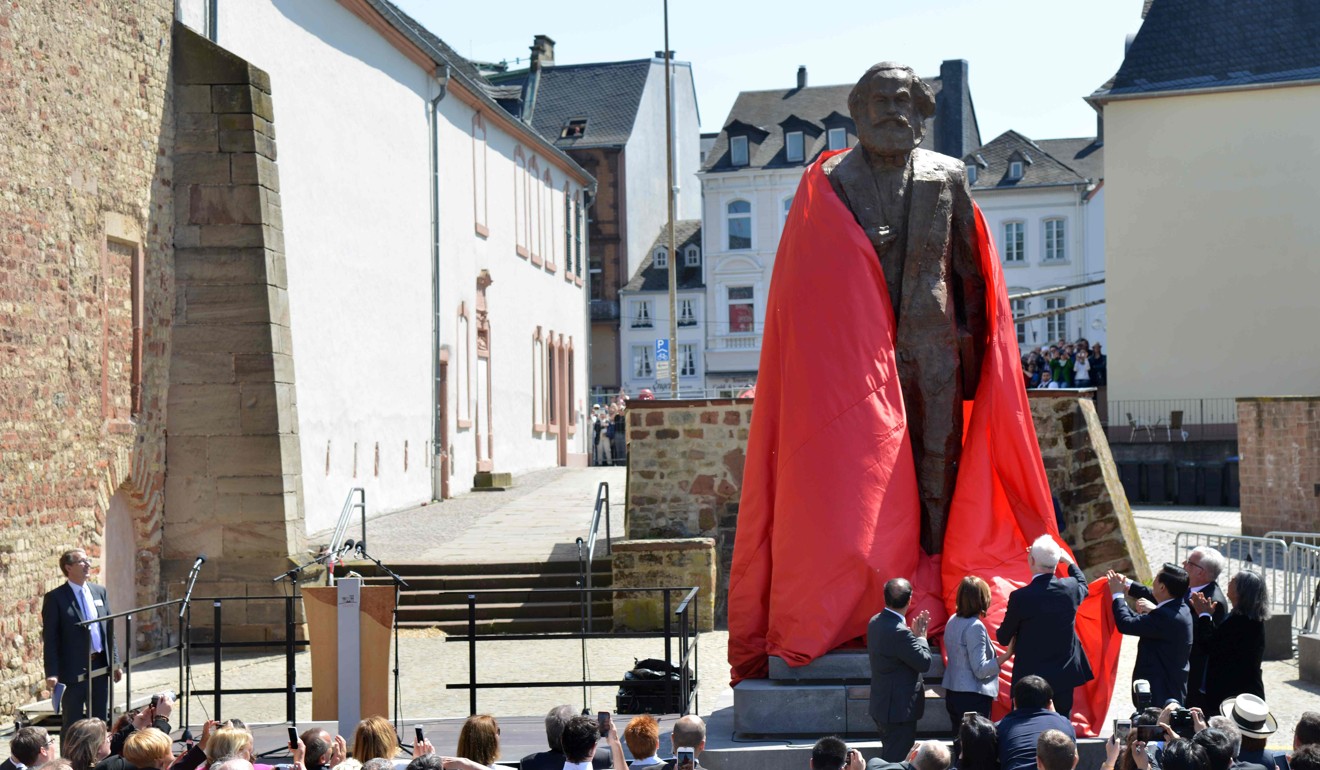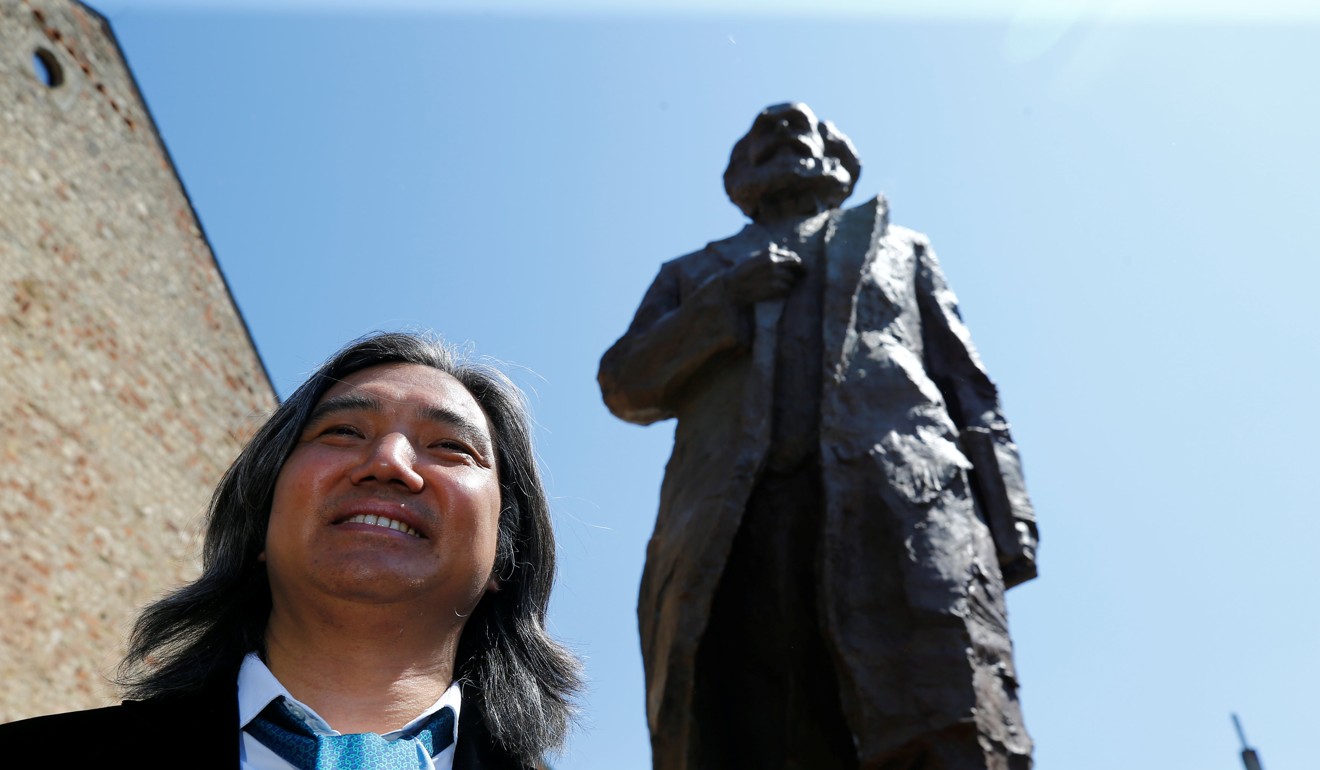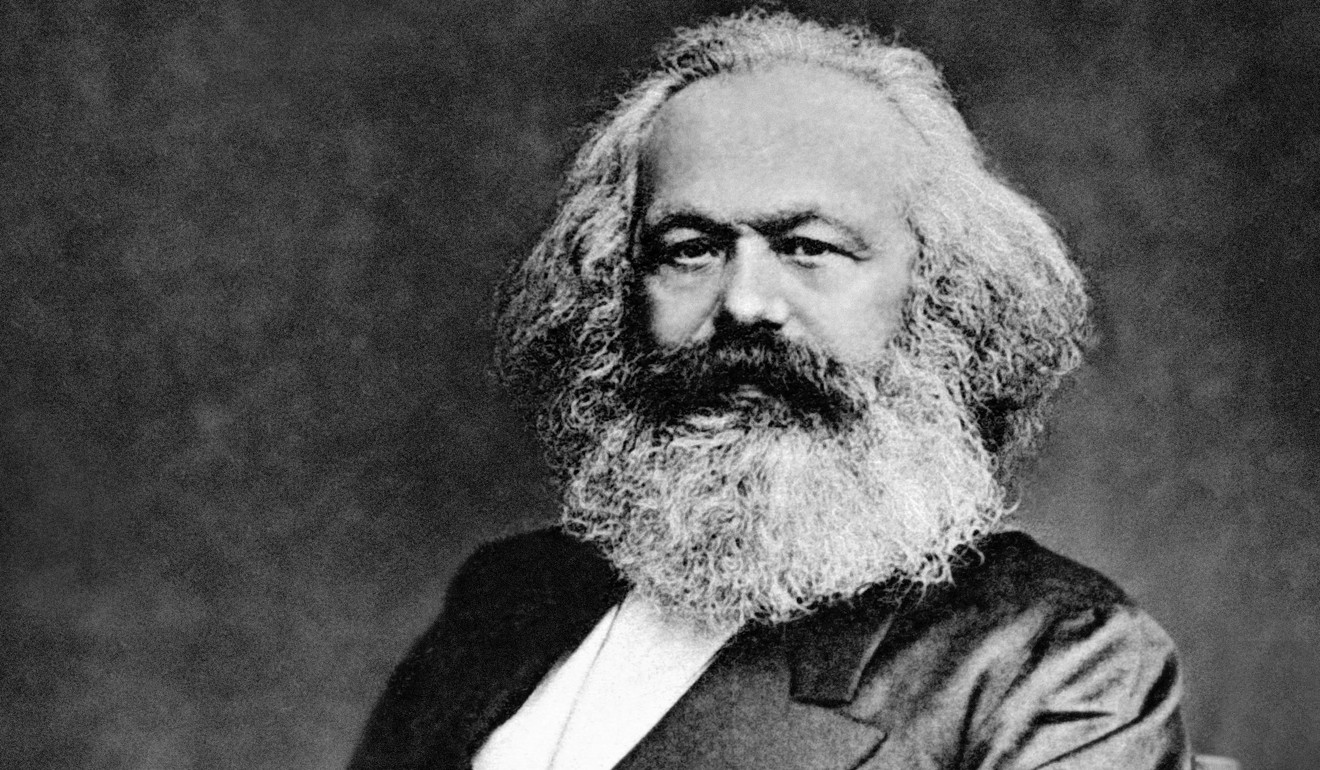
Karl Marx’s German birthplace unveils Chinese-made statue for 200th birthday … but not everyone is pleased
Bronze sculpture, which towers over five metres high including the plinth, was a gift from China to mark birthday of the founder of Communism
Nearly two centuries ago, the 17-year-old son of a vineyard owner left this tranquil riverside city on the edge of the Prussian empire to make his way in the world - and maybe shake it up a bit.
On Saturday, after inspiring untold numbers of revolutions, repressive regimes and ponderous graduate school seminars, Karl Marx came home, in bronze.
The sculpture, which towers over five metres high including the plinth, is a gift from China to mark the 200th birthday of the founder of Communism.
The city is split over whether a democratic nation such as Germany should be erecting monuments that are paid for, designed and built by an authoritarian one such as China.
The divide spilled into the streets Saturday with duelling demonstrations for and against the monolith, forming a noisy backdrop to the statue’s official dedication.
On one side, hundreds of flag-waving members of Germany’s fringe Communist Party cheered.

On the other - separated by barricades and riot police - an eclectic group of Free Tibet, anti-Fascist and pro-human rights protesters chanted and blew whistles in a vain effort to drown out the speeches.
City officials say they see nothing wrong with the statue’s unusual path to Trier’s downtown.
But others in Germany - a nation divided for nearly a half-century due in no small part to its native son’s theories - say city officials are being naive about a project that neatly aligns with Chinese state propaganda.
“There’s no doubt that there’s a political agenda behind it,” said Christian Soffel, a Chinese studies professor at Trier University.
How important Marx is to that agenda was underlined by the visit of two senior Chinese officials who spoke at Saturday’s ceremony.

The officials - the country’s ambassador to Germany and the deputy chief of the Information Ministry, the government’s propaganda arm - each paid tribute to Marx, though not in terribly Marxian terms.
The ambassador, Shi Mingde, said China had “modernised” Marx’s theories - a veiled reference to the country’s hearty embrace of much of modern capitalism - and boasted that China is responsible for 30 per cent of global economic growth.
“For that,” he said, “we can thank Karl Marx”.
At the unveiling’s critical moment, Chinese and German officials together pulled back a red drape to reveal a rendering of Marx in full stride - a book clutched beneath his left arm, his right gently pressed to his signature frock coat.
China had already held its own lavish event to honour the bicentennial.

Xi, who recently pushed through constitutional changes that could allow him to stay in office indefinitely, has urged all Communist Party members to read Marx and adopt his theories as “a way of life”.
Xi’s German counterpart, President Frank-Walter Steinmeier, showed markedly less affection with his own speech about Marx on Thursday.
The philosopher was undeniably influential, Steinmeier said, and his ideas need to be discussed. But the country also cannot forget that his writings gave fuel to murderous regimes - and still do.
“We shouldn’t fear Marx, but we don’t need to build any golden statues to him either,” Steinmeier said.
Not so long ago, Germany was tearing down statues of Marx. An icon of communist East Germany, his likeness was scrubbed from many a town square after the country’s reunification under democracy and capitalism in 1990.
Modern-day Trier, with a population just north of 100,000, reflects little evidence that Marx’s ideas had much impact locally.
Icons of capitalism - McDonald’s hamburgers, luxury watches, designer clothing brands - are on sale in the grand central square.
Marx’s boyhood home, meanwhile, has become a “euro store,” where everything from Chinese-made flip-flops to sunglasses can be bought with loose change.
But the gigantic statue gifted by Beijing has sparked accusations of a city seeking to capitalise on Chinese tourists or investments.
Rejecting the claims, Trier mayor Wolfram Leibe said it is simply “a gesture of friendship” from China.
“There isn’t a single Chinese company in Trier. We have no economic relations with China and that means we made this decision autonomously. We are not susceptible to blackmail,” he said.
Leibe acknowledged that the statue could become a vandalism target, but said: “that isn’t going to give me sleepless nights. It can simply be cleaned up.”
The Washington Post, Agence France-Presse
